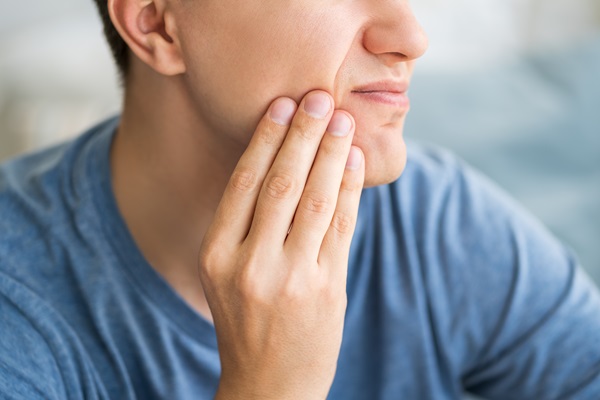Dental Botox Treatment for TMJ Headaches

TMJ can cause an immense amount of pain and discomfort, specifically in the jaw. However, when this joint condition becomes an ongoing problem, many individuals also suffer from headaches. TMJ headaches are not as easily treatable as a random migraine here and there. Instead, they often require a deeper dive because the root of the problem stems from the dysfunction of the temporomandibular joint.
Thankfully, dentists have begun to explore the use of dental Botox® for treating TMJ and its associated symptoms. While Botox® has primarily been used for cosmetic reasons, recent findings have discovered the advantages that come with using it for dental purposes.
Treating TMJ headaches with dental Botox®
Below is an overview of dental Botox® and the way dentists utilize it to treat headaches caused by the temporomandibular joint disorder. When a person suffers from symptoms of this problem, it can be helpful to review the following information.
TMJ headaches
The temporomandibular joint is a special joint that connects the jawbone to the skull. Many people experience a malfunction with this joint as it aids in eating, speaking, and smiling. The symptoms associated with TMJ dysfunction include locked jaw, pain, soreness, teeth grinding, and headaches.
Facts about dental Botox®
Botox® use in dentistry is becoming more popular since it provides many benefits. It is the fermentation of C botulinum, which is prepared in a lab. Once formulated, the technician transfers the solution to an injection-style treatment, which can be used in cosmetic medicine or in dentistry.
When dental Botox® is used for treating TMJ headaches, individuals can expect less pressure on their teeth and jaw, which then reduces stress. Less stress means fewer headaches and not as many TMJ symptoms.
How treatment works
Dental Botox® treatment works through injections. The dentist will inject the Botox® directly into the jaw area every 90 days, depending on the severity of the headaches and symptoms. Most individuals should expect their dentist to work toward a more long-term solution for treating the disorder. However, dental Botox is a great option for relieving temporary pain and stress. Solutions that are more permanent include a bite guard, bite adjustment through orthodontics, or even a restoration to make the bite more evenly aligned.
Benefits of dental Botox®
TMJ headaches can be painful and hard to endure, which is why Botox® should be considered. A number of improved outcomes accompanying the treatment may include:
- Less jaw tension
- Pressure relief
- Diminished locking of the jaw
- Pain reduction
- Long-lasting results
There may also be patient-specific advantages that come along with using Botox® for TMJ treatment. However, a dentist would have to identify these during an evaluation.
Find out more about dental Botox® for TMJ headaches
Individuals who suffer from temporomandibular joint symptoms may benefit greatly from having dental Botox® administered. To get started, an evaluation with a dentist is necessary. The assessment determines whether dental Botox® is an appropriate option to treat TMJ headaches. Reach out today to learn more about this treatment or to get started with a consultation.
Request an appointment here: https://gladuradds.com or call Gladura Dental at (740) 780-0619 for an appointment in our Pataskala office.
Check out what others are saying about our dental services on Yelp: TMJ Dentist in Pataskala, OH.
Related Posts
TMJ disorders are known to be one of the most grueling, as they induce a lot of discomfort and difficulty eating. However, modern-day technology has allowed for a wide range of options when it comes to treatment plans. Working with a general dentist is typically the first step. As surprising as it may be, general…
If you have recently been diagnosed with TMJ disorder, a dentist might recommend getting a bite guard to ease the symptoms. TMJ disorder causes symptoms such as earaches, headaches and facial pain. Since the symptoms worsen gradually and appear unrelated, the condition can go undiagnosed and untreated, and it affects a patient's quality of life.Several…
Many patients ask what makes a deep teeth cleaning different from a routine visit for a checkup. The short answer is that a routine visit every six months focuses on prevention, while a deep teeth cleaning targets active gum infection. Both appointments support oral health, yet they serve different needs. Learning more about the differences…
The general dentist often uses a dental filling as a restoration procedure for teeth damaged due to decay. Unless the tooth is severely damaged and needs a root canal and a crown, only the tooth filling will be enough. It is better to visit the dentist regularly for checkups, so decay not get too severe.The…
